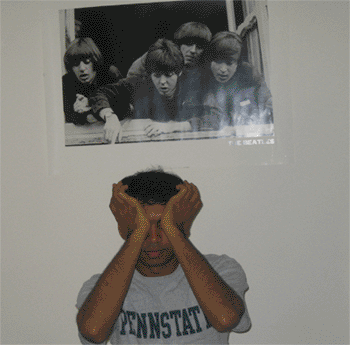the doosra - a bad decision (or two, or more)
I thought I had seen the worst umpire in the league when I played a match last season who was bent on enforcing the strict adherence to non-profanity clause from the by-laws of the league. For him, all other decisions were of secondary importance.
Then I saw another one this season. He stood, metaphorically speaking, on the murky grounds of shunning the exact responsibilities that he, as an umpire, is supposed to undertake. Merriam-Webster defines an umpire as "an official in a sport who rules on plays" and in this context I speak when I say that time and again he has transferred the onus of his job to the player and transgressed as an umpire. An error in a lbw decision or a missed short-run are completely understandable in this unpredictable game of cricket but what do you say to an umpire
who, on every ball that (doubtfully) touches the pad, transfers the stalk of decision-making on the batsman by asking him whether the ball made contact with his bat or pad;
who denies an lbw appeal because the ball came off the bat after hitting the pad first;
who employs puzzling tactics like shaking his head up and down in response to an unclear catch in the slips, so as to confuse the batsman who in turn walks thinking that he was given out by the umpire;
who, after performing the above outrageous stunt, blurts out his imbecile approach to the very player he sacrificed;
who warns the replacement keeper when he realizes that the change has occured without notifying him and announces that technically 5 runs could be awarded but I'll let you go this one time (you stupid arse, if it's a rule then you award the runs, period).
We lost the game and it wasn't because of the umpiring but I lost it because of the umpiring.
Ironically, the league requires a payment to file an official complaint. Hasn't cricket paid enough!!

